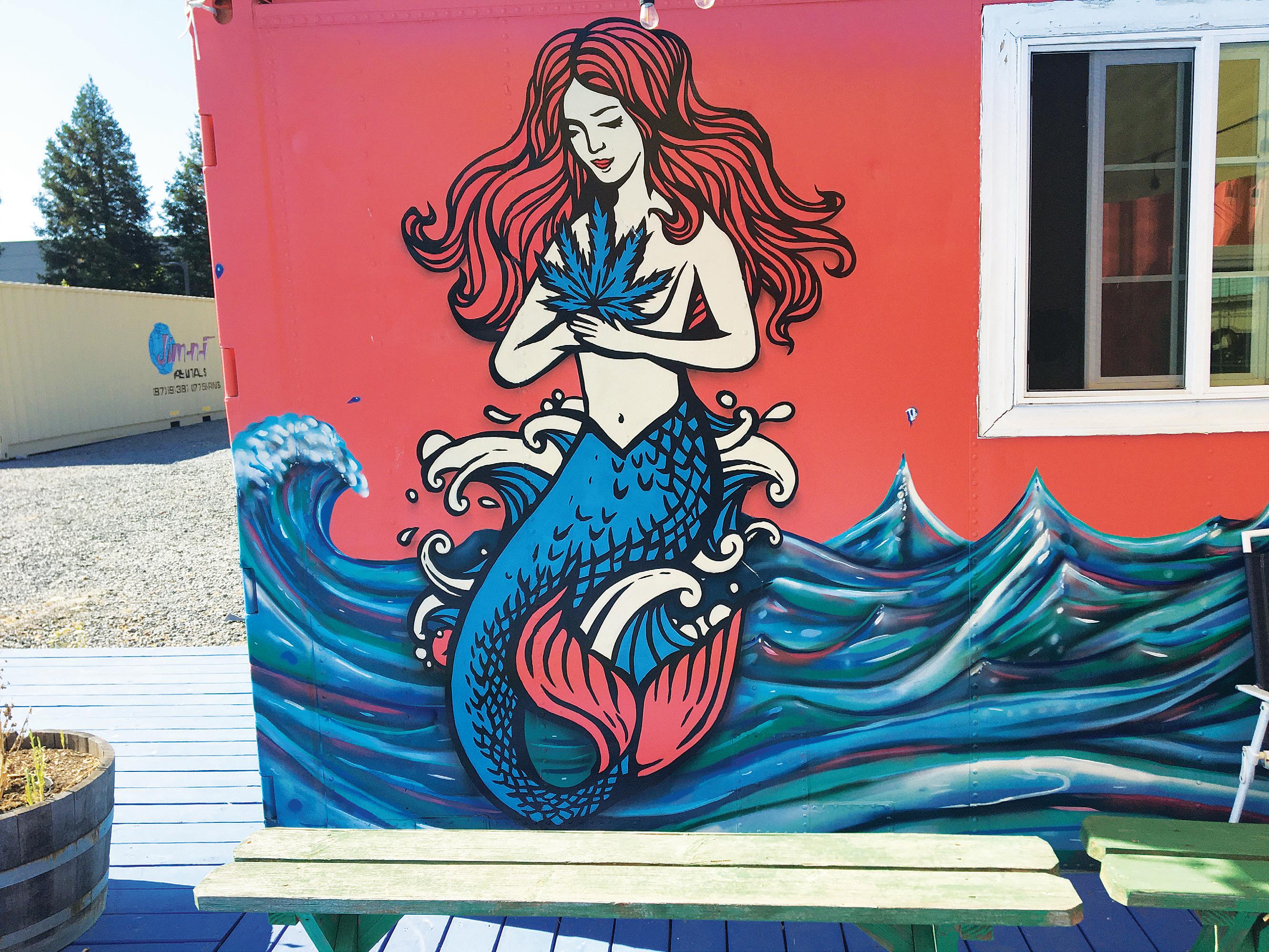
4 minute read
Marin’s ExtraFood
from Boheme Fall 2020
by Weeklys
Nourishing COMMUNITY
PROVIDING Entrepreneur Amber Driscoll is the development manager for ExtraFood, a Marin nonprofit that gathers up excess food from over 250 grocery stores, hospitals, schools and office parks, and redistributes it to those in need.
How ExtraFood redistributes food to those in need
BY KARY HESS
Amber Driscoll has a knack for business and a love of food. She emerged from years of fundraising work to open two North Bay restaurants— Speakeasy in Petaluma and Fog’s Kitchen in Inverness—and The Big Easy, a music venue in Petaluma, as well as the Opera House Collective, a retail collective of almost 100 artists and makers.
“I was working in nonprofit fundraising, which was my profession for a number of years, but had dreamed about opening a restaurant,” Driscoll says. “I have an MBA from UC Irvine and had wanted to make one of my many business ideas come to life for a long time. Eventually when the perfect little space became available, in the heart of downtown in Helen Putnam Plaza, I opened Speakeasy along with my business partner Roger Tschann.” » »
— AMBER DRISCOLL, EXTRAFOOD
«« In December 2019, she brought her love of nourishing the community full circle back to fundraising. She is currently the Development Manager for ExtraFood, a Marin nonprofit that gathers up excess food from over 250 grocery stores, hospitals, schools and office parks, and redistributes it to those in need.
“I decided last year that it was time for me to apply myself again in a full-time capacity to support the work of a community nonprofit,” Driscoll says. “I’m really grateful to be able to support such critical work at a time when so many people are suffering because of this pandemic. The people I work with are so inspiring, and it’s rejuvenating to be working alongside so many coworkers and volunteers who do so much for their neighbors.”
According to Driscoll, about 20 percent of the populations in Marin and Sonoma counties are food insecure on an ongoing basis, and 41 percent of the children in Marin County are enrolled in free or reduced-cost lunch programs. Add to that the newly food insecure as a result of the current pandemic.
“Now there are tens of thousands more people who are food insecure for the first time, who don’t know how to access supportive programs,” she says. “A lot of these people are service industry people who live paycheck to paycheck and maybe don’t qualify—for whatever reason—for state or federal food programs.”
Driscoll explains how ExtraFood’s staff and volunteers first pick up the fresh food from food businesses all around the county and then deliver it to over 125 nonprofit partners and food programs which are already connected with, and serving, the most vulnerable people in the community.
Their Community Meals Program then partners with restaurants and catering companies to make freshly prepared meals for people in need, including low-income seniors and families—many of whom have been devastated by this crisis—reaching over 8,000 people.
In fact, over the past six and a half years, ExtraFood has collected 4 million pounds of food and served 3.3 million meals to the community.
Driscoll is proud of her work at ExtraFood, particularly the four new distribution sites she helped launch over the past 2-and-a-half months. Two are at schools serving families whose children used to attend those schools where they received free or reduced cost breakfast and lunches before the pandemic shifted schools to distance learning.
“Since the crisis began the most urgent need we have is for fresh, prepared meals,” she says. “Many families who have lost their jobs and have children who used to rely on the school breakfast and lunch programs are asking for prepared meals. Additionally, many seniors who struggle with hunger can’t leave their homes, and many also have trouble cooking for themselves.”
“I’d love to see ExtraFood grow,” says Driscoll. “It’s such an efficient, really well-run organization with hundreds of amazing volunteers. By [its] nature food recovery is localized—it’s all about the local food system and moving food from place to place in as short a distance as you can.”
While Driscoll’s restaurant, Fog’s Kitchen in Inverness, has since closed and she and her partner Terra Livingston sold the Opera House Collective to Kory Vanderpool in 2018, Driscoll still works with Tschann at Speakeasy and The Big Easy in Petaluma, navigating the new normal for the community.
“Recreating togetherness in the wake of this pandemic, and with such a charged and divisive political landscape, will require a lot of our thoughtful attention and combined efforts,” she says. “I’m focusing on helping to rebuild the community, and supporting the hard work of other small business owners, nonprofits and public officials who are trying to solve these complex problems and fight for equality and justice.” w


